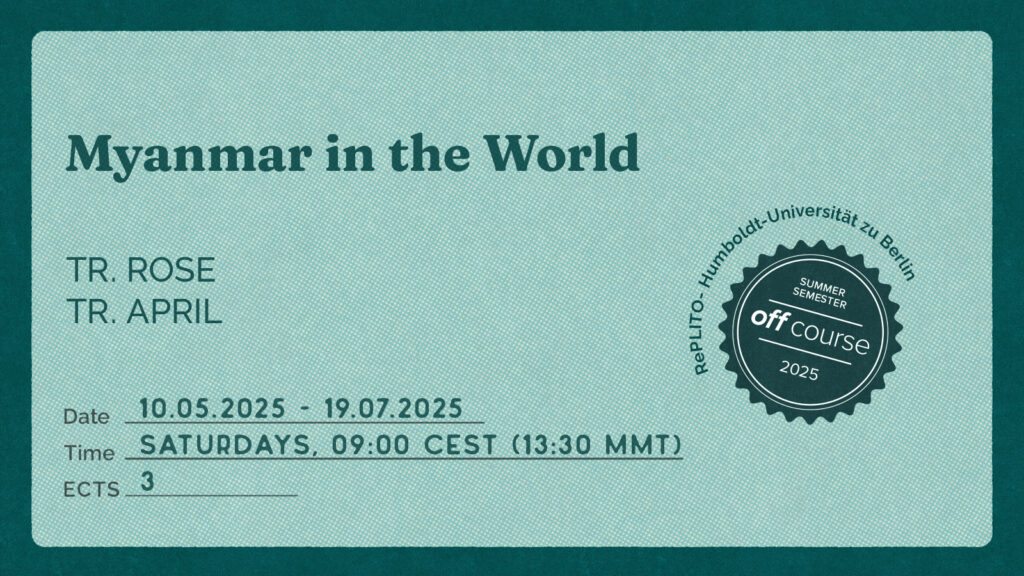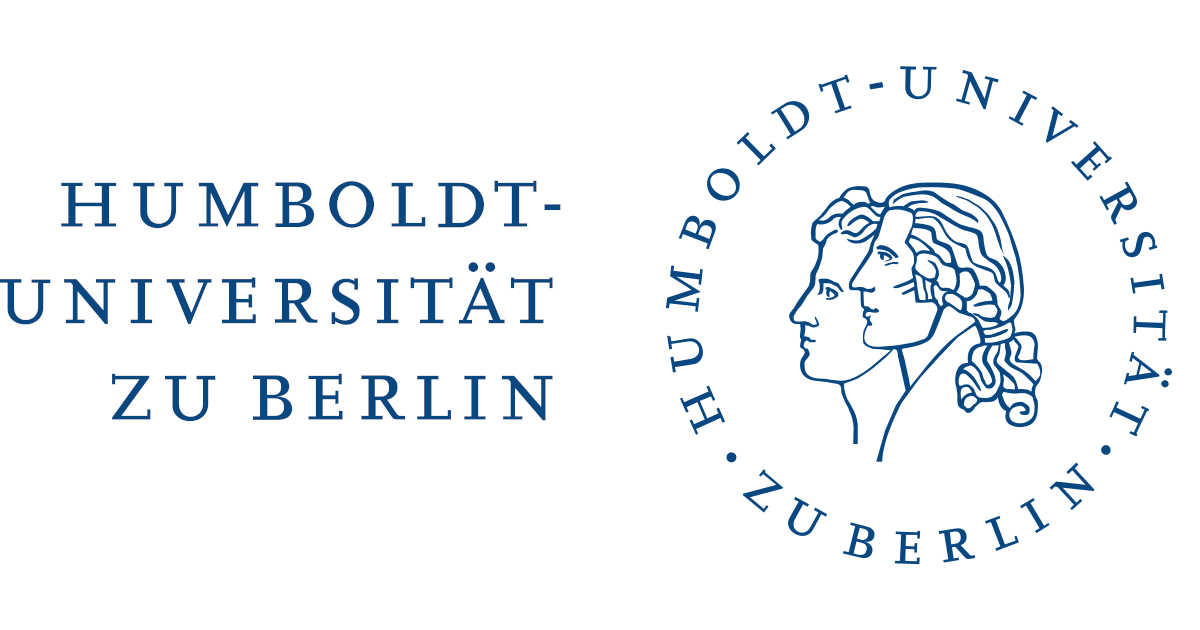Myanmar in the World
See the Course Description in Burmese
Overview
This course discusses the impact of geographical aspects such as location, resources and demography on (international) politics. Geopolitics is a method of studying foreign policy in order to understand, explain and predict international political behaviour. Geographical characteristics are closely related to a country’s decision-making process in determining its foreign policy principles, they can influence a country’s attitude towards other countries and are a strategic resource to enhance its geopolitical value.
Myanmar occupies an important geopolitical position when viewed from strategic, political and economic dimensions. At present, Myanmar’s location is important not only for China but also for India; it has wider geopolitical implications for the whole region and beyond. In terms of geography, Myanmar occupies the tri-junction where China and India meet. Moreover, Myanmar’s location is crucial for China’s “Go West” and “Two Ocean Strategy” and India’s “Look East Policy”: it is a land bridge for them. In addition to its geographical location, Myanmar’s abundant natural resources, especially in the area of energy sources, enhance its geopolitical importance.
In this seminar, students will learn about the main theories of geopolitics in international relations and apply their theoretical knowledge to the context of Myanmar.
Learning Outcomes
A general understanding of:
- the combination of geographic and political factors determining the condition of a state and emphasizing the influence of geography on politics.
- geographic features and its impact on the country’s foreign policy.
- the action of world powers from a theoretical point of view
The skills to be gained upon active participation:
- Understanding the effects of location, resources, human ideology and human culture on local and international politics.
- Apply the geopolitics theory on Myanmar’s geostrategic position.
- Supporting students to improve their critical and analytical skills.
- Ability to analyze Myanmar’s geostrategic location, its importance for world powers and whether successive Myanmar governments have been able to exploit the location/resources of their country or not.
Course Outline
Week 1 – What is Geopolitics?
Week 2 – Geostrategical fault line
Week 3 – Ideological Fault Line
Week 4 – Cultural Fault Line
Week 5 – Geostrategic Players and Geopolitical Pivots
Week 6 – Myanmar as a Geopolitical Pivot in Indo-Pacific Region
Week 7 – Myanmar’s Geostrategic Location and India’s Myanmar Policy
Week 8 – India’s Look East Policy and Myanmar
Week 9 – China’s “String of Pearls” Strategy
Week 10 – BRI and Myanmar
Week 11 – BRI: The dividends for China
Week 13 – Myanmar in BRI: Cooperation or Contention?
Instructors
Tr. April
Tr. April, Associate Professor at the Department of Political Science and International Relations, took part in the nationwide Civil Disobedience Movement (CDM) against the 2021 military coup. She received her PhD in International Relations degrees in 2007. Her area of specialization is Geopolitics and Public Administration. She has published on issue of Public Administration, especially on Civil Service reforms in Myanmar and has published on issue of Geopolitics, especially the role of Myanmar in the China and India competition in academic journals and books. Her current research interest is the role of China in Myanmar.
Tr. Rose
Tr. Rose, an Associate Professor, participated in the nationwide Civil Disobedience Movement (CDM) against the 2021 illegitimate military coup in Myanmar. She received her PhD degree in 2007. Her recent publications include Human Trafficking, EU-Myanmar Relations, the Rule of Law, and Separation of Powers research. Her fields of specialization are international relations, political institutions, democracy, and human rights. As well as being a teacher and a woman, Tr. Rose is deeply interested in the intersection of gender and human security; especially, how these factors relate to and redefine each other in constructing of the pasts, presents and futures in the society of Myanmar.
Certification
This course is hosted by Humboldt University Berlin and certified with 3 ECTS upon successful completion.
Please check the course requirements from the course syllabus and inform your instructor(s) about your request to receive a certificate for this course.
You will find the full syllabus on Moodle course page.
At the end of the semester, the instructors will inform the learning designer about your request and grade. The certificate will be prepared with the university secretariat and it may take up to 8 weeks.
Registration
Our courses are held on a digital learning platform, Moodle. Before you create your account on Moodle, we have some notes for your and others’ digital security.
- When you register, you can use a nickname. Nicknames with offensive, racist or sexist undertones will not be accepted.
- Communication outside of the platform is not private. It is a solidarity action with people who would like to stay anonymous for different reasons. Please use our secure platform to communicate with others and respect their choices of communication channels.
- We aim to create an inclusive learning environment with our participants and educate ourselves in a more inclusive language. Be eager and tolerant to learn from each other and challenge any discriminating language. You can have a look at it here.
Creating a new account and registering to a course on Moodle
1. The link will take you to the Off University Moodle homepage.
2. Click the “Log in” button on the top right side of the page.
If you have an account on Off University Moodle, please login and continue from step 7 below.
3. Scroll down to see “Create new account” and click the button.
4. Please fill in the fields marked as *required.
You can use false information to protect your identity and increase your safety. You can enter a nickname, a false email address that resembles the format, such as name@example.org etc. Please note down your user name and password in a safe place.
5. Once you created your account, please wait until the next working day to continue.
Your account needs activation which will be done by Off University. We will need some time to activate your account. This can take up to 24 hours on weekdays and longer on weekends.
6. Please login to check whether your account it active. Once you can login, you will find the available courses on the home page of Moodle and will be able to register by clicking the course title.
7. You can now discover the course page. The first item on the page, General, contains the syllabus and the announcements. Please follow these announcements to stay up to date about your course.

Course Details
Duration
10.05.2025 – 19.07.2025
Time
Saturdays, 09:00 CEST,
13:30 MMT
Credits
3 ECTS
Language
English
Host Institution
Humboldt University Berlin, Institute for Asian and African Studies
Registration:
Supported by:



